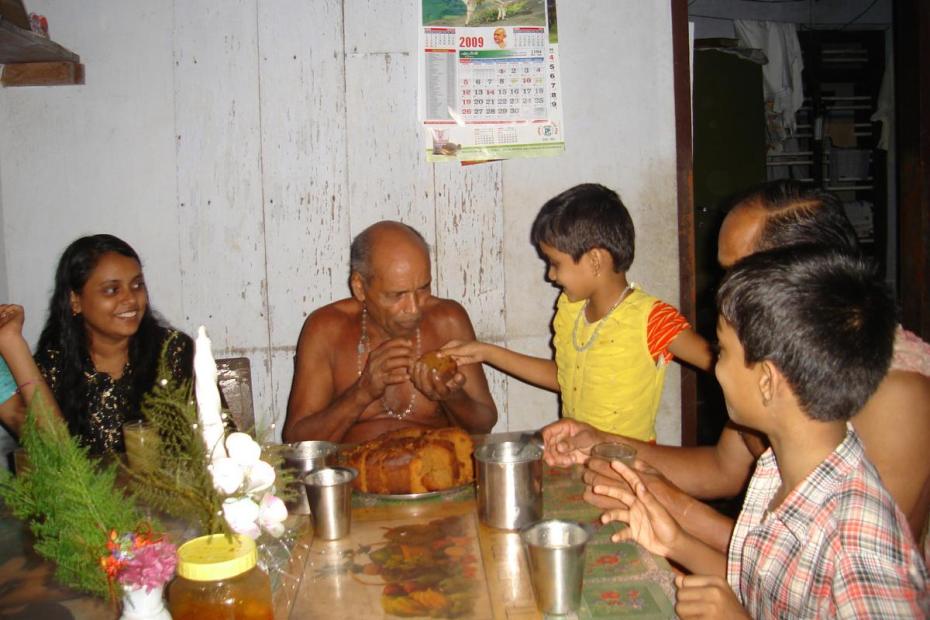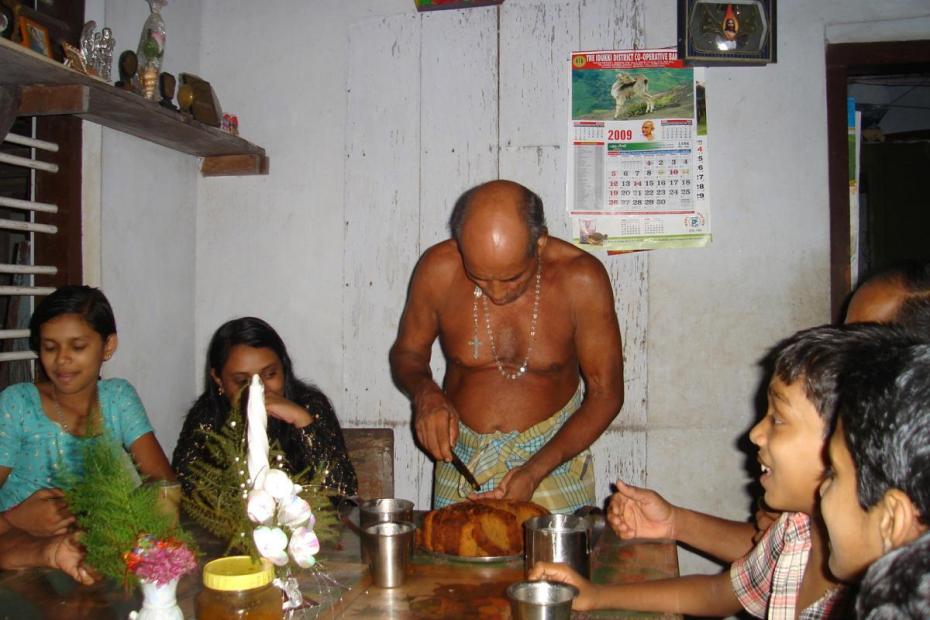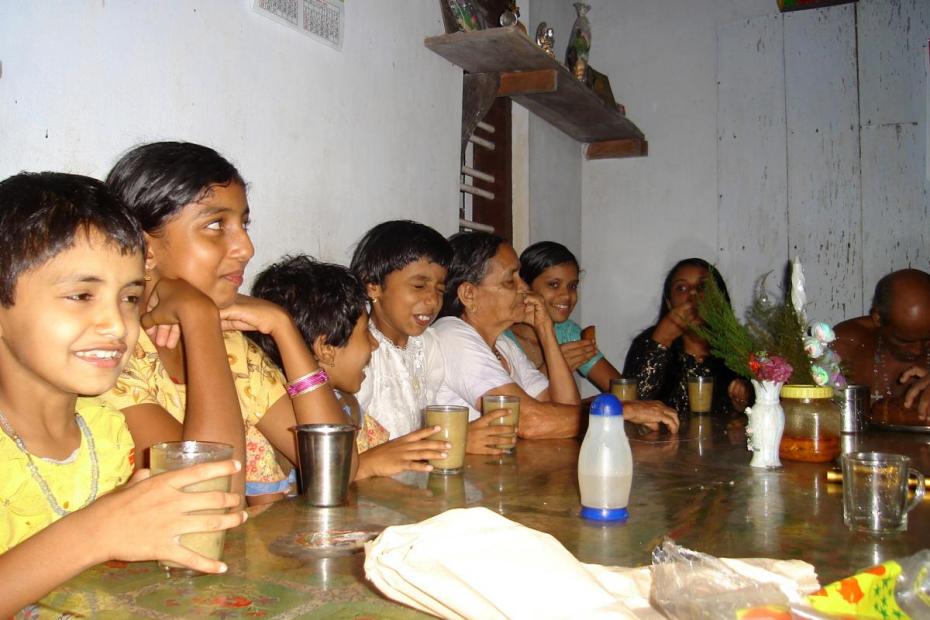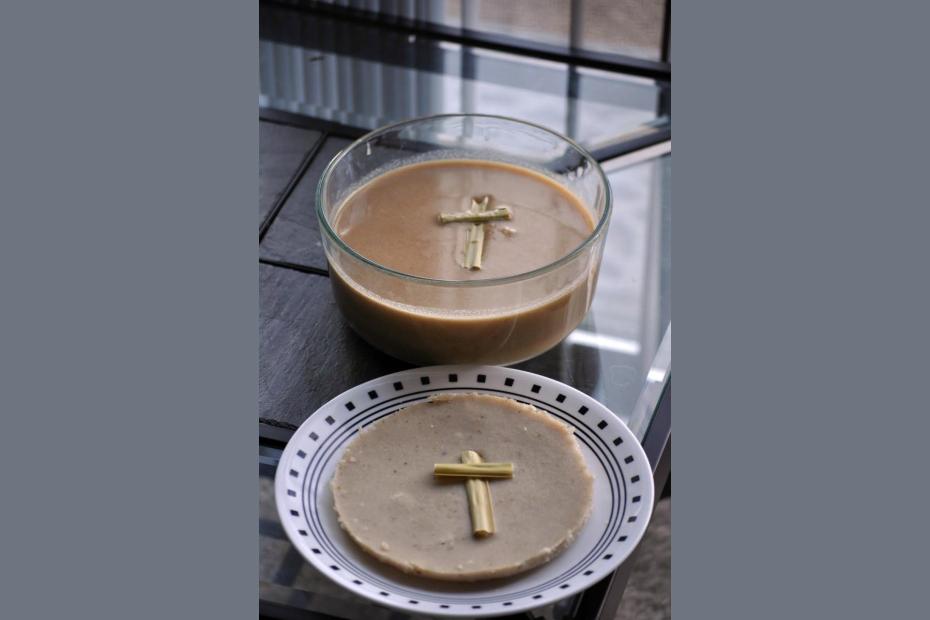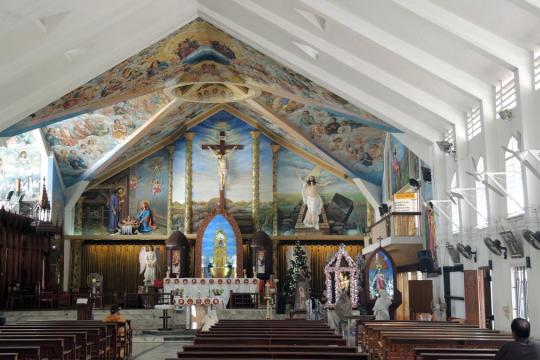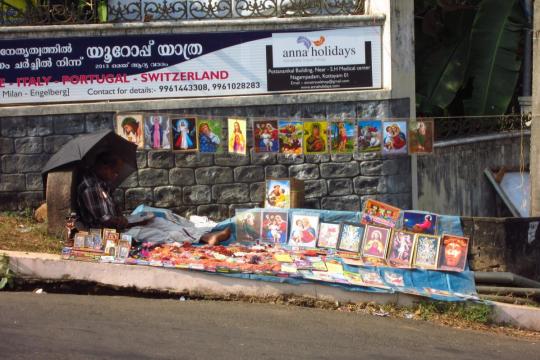Syro-Malabar and Syro-Malankara Catholics (and Syrian Orthodox Christians of India) have a special traditional way to mark the Last Supper at their family table, using local food substitutes for the Passover bread and wine.
That day, families prepare a special, flat, round, unleavened bread, Pesaha appam, which has a small palm cross, cut from the Palm Sunday palms, baked on top. They also prepare a sweet syrup, Pesaha pal, made from coconut milk. Alluding to the letters of the sign traditionally placed above Jesus’ head on crucifixes, the bread is often called INRI Appam. Preparation of the traditional foods is quite time intensive, though some people buy them at a bakery today.
At their tables in the evening, after Masses, families pray, and the male head of the house cuts and serves the bread, dipping it in the sweet syrup, and handing a piece to each family member. Children might also drink the sweet milk from cups.
